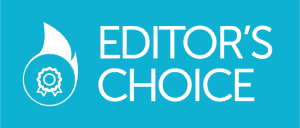According to an article in Batten Disease News, enrollment is complete for a Phase 1/2 clinical trial. Within the trial, researchers will be evaluating Batten-1 for adolescents and adults with juvenile Batten disease (also known as juvenile NCL or CLN3).
Theranexus describes Batten-1 as:
a new proprietary and exclusive pharmaceutical product whose active ingredient is miglustat. The mechanism of action of this active ingredient blocks the accumulation of glycoshpingolipids and neuroinflammation to prevent brain cell death.
Batten-1 is administered orally as a 100mg capsule. It was developed through a joint development partnership between Theranexus and the Beyond Batten Disease Foundation (BBDF). While it was originally a combination, the researchers found that miglustat was most effective, so they focused on that specific ingredient.
Altogether, six participants enrolled in this study. Researchers will evaluate the safety, tolerability, and pharmacokinetics of the therapy. The study will follow patients over a 2-year period.
The partners do hope to run more studies in the future to advance the development of Batten-1. Currently, there are no approved treatments for people with juvenile Batten disease. Therefore, this drug holds the potential to fill unmet needs.
Batten Disease: An Overview
Batten disease, or neuronal ceroid lipofuscinosis (NCL), is a rare group of progressive inherited nervous system disorders. There are four main forms of Batten disease: infantile, late-infantile, juvenile, and adult. However, there have been 13 different types discovered as a whole. Juvenile Batten disease, caused by CLN3 mutations, is considered to be the most common form. In this condition, lipopigments (made of fat and protein) build up in cells, causing neuron death. Age of manifestation, as well as life expectancy, vary based on subtype. While this is not an exhaustive list of symptoms, symptoms of this disorder can include:
- Worsening speech and motor skill problems
- Changes in mood or behavior
- Visual impairment which may progress to blindness
- Seizures
- Limb weakness
- Speech difficulties
- Heart arrhythmias or other heart-related issues
- Sleep disturbances
- Muscle contractions
- Dementia








